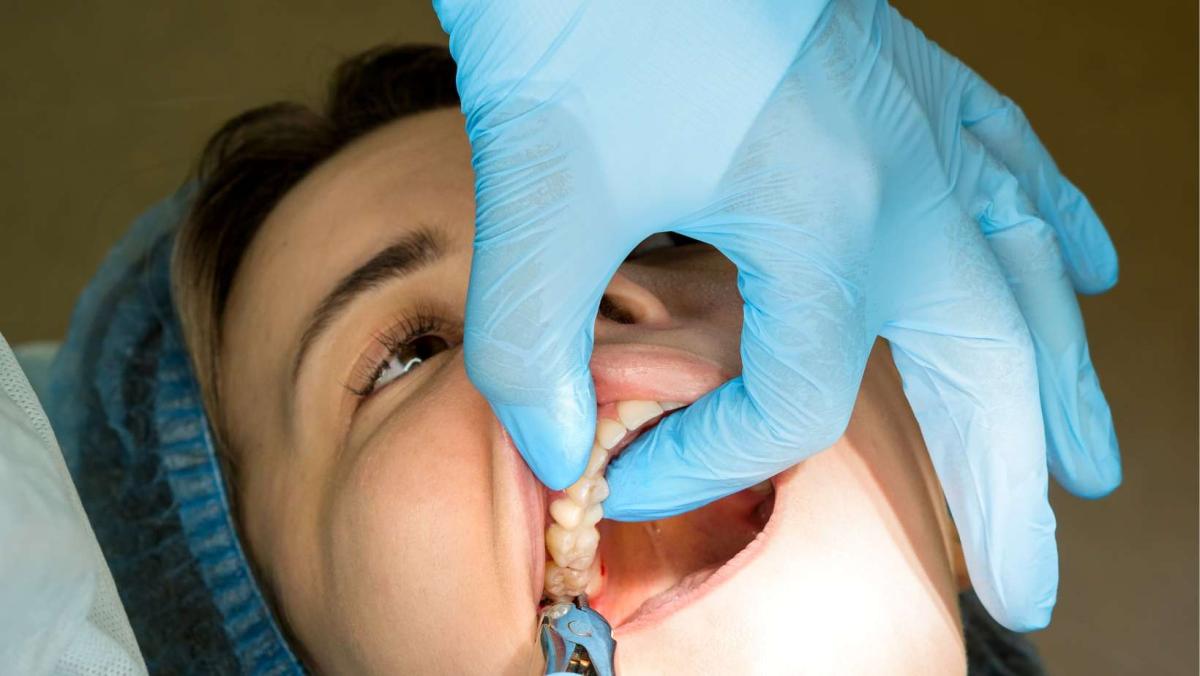How To Reduce Anxiety Before Surgical Tooth Removal?
Introduction
For many patients, the thought of undergoing a tooth extraction can trigger anxiety and fear. From imagining the procedure to worrying about pain and recovery, dental anxiety is common — and it can even delay treatment. If you’re preparing for Surgical Tooth Removal in Islamabad, knowing how to manage stress and prepare mentally can make the experience smoother and less intimidating. This guide explores effective strategies to reduce anxiety, what to expect before and during surgery, and tips to ensure a comfortable recovery.

Why Do Patients Feel Anxious Before Surgical Tooth Removal?
Anxiety before dental surgery is completely normal. Several factors can contribute, including: Fear of pain or discomfort
Previous negative dental experiences
Concerns about anesthesia
Anticipation of recovery and swelling
Worry about costs or complications
Understanding these triggers is the first step toward managing anxiety. Identifying your specific concerns allows you to discuss them with your dentist, who can provide tailored reassurance.
What Are the Best Pre-Surgery Techniques to Reduce Anxiety?
There are multiple strategies you can use to feel calmer before your surgery:
Deep Breathing and Meditation – Practice slow, controlled breathing exercises or guided meditation to reduce nervous tension.
Listen to Music or Podcasts – Distracting your mind with calming music can lower stress hormones.
Cognitive Behavioral Techniques – Positive visualization of a smooth, painless procedure helps reframe your mindset.
Arrive Early – Familiarizing yourself with the dental environment can reduce uncertainty.
Bring a Support Person – Having a friend or family member accompany you can provide comfort and reassurance.
Are Sedation Options Available During Surgical Tooth Removal?
Yes — modern dental practices offer several sedation options to help patients relax. The most common include: Sedation Type
Description
When It’s Used
Local Anesthesia
Numbs only the treatment area
Routine extractions
Oral Sedation
Taken as a pill to relax the patient
Moderate anxiety
IV Sedation
Administered intravenously for deeper relaxation
Severe dental anxiety or complex surgery
Nitrous Oxide (Laughing Gas)
Inhaled to reduce stress
Mild to moderate anxiety
Discuss sedation preferences with your dentist beforehand. They will recommend the safest option based on your medical history and anxiety level.
How Can I Mentally Prepare Before Surgery?
Mental preparation can significantly improve your comfort and confidence:
Educate Yourself – Understanding the steps involved in surgical tooth removal can reduce fear of the unknown.
Ask Questions – Ask your dentist about the procedure, anesthesia, and recovery to clarify doubts.
Visualize Success – Picture yourself completing the procedure calmly and recovering smoothly.
Practice Relaxation – Techniques like progressive muscle relaxation can ease tension.
Mental preparation combined with physical relaxation often results in a smoother procedure and a positive overall experience.
Reviews: Patient Experiences With Anxiety Management
"I was nervous about my wisdom tooth removal, but my dentist explained everything clearly and offered nitrous oxide. I felt calm the entire time and recovered quickly."
"Deep breathing exercises and bringing my sister along helped me a lot. The surgery was painless, and I felt in control throughout the process."
"I opted for oral sedation, and it made a huge difference. I hardly felt anxious at all, and the whole experience was much easier than I expected."
Patient feedback shows that combining professional support with personal coping strategies greatly reduces pre-surgery anxiety.
How Should I Prepare Physically Before Surgery?
Physical preparation is just as important as mental preparation:
Follow Fasting Instructions – If sedation is planned, your dentist may advise no food or drink for a few hours before surgery.
Rest Well – A good night’s sleep helps reduce stress and improves pain tolerance.
Avoid Stimulants – Reduce caffeine or energy drinks, which can increase anxiety.
Wear Comfortable Clothing – Loose clothing and short sleeves allow easy access for IV sedation if needed.
Being physically ready reduces complications and allows the dentist to focus on a smooth procedure.
What Can I Expect During Recovery After Surgical Tooth Removal?
Post-surgery, your dentist will provide instructions for managing swelling, discomfort, and oral hygiene. Key tips include: Apply ice packs to reduce swelling
Eat soft foods for a few days
Avoid vigorous rinsing or spitting
Take prescribed medications on time
Maintain oral hygiene carefully without disturbing the surgical site
Following these instructions ensures a comfortable recovery and minimizes anxiety about healing.
How Can Follow-Up Care Reduce Anxiety for Future Procedures?
Regular dental visits and positive experiences build confidence. Even small procedures, like cleaning or checkups, help you become more comfortable in a dental setting. Discussing your anxiety openly with your dentist ensures they can provide extra support in future treatments.
Conclusion
Anxiety before surgical tooth removal is common, but there are effective ways to manage it. From mental preparation and relaxation techniques to sedation options and professional guidance, patients can approach surgery confidently and comfortably. By combining personal coping strategies with professional support, surgical tooth removal in Islamabad can be a smooth, safe, and anxiety-free experience.
Contact Us
If you’re feeling anxious about an upcoming surgical tooth removal, our experienced dental team can help. We offer personalized support, sedation options, and step-by-step guidance to ensure a comfortable experience.
Address : Office Number LG 20 - 21 Interlace Plaza I-8 Markaz Islamabad
Phone : +92 333 5705871
Email : info@glamorousclinic.com.pk